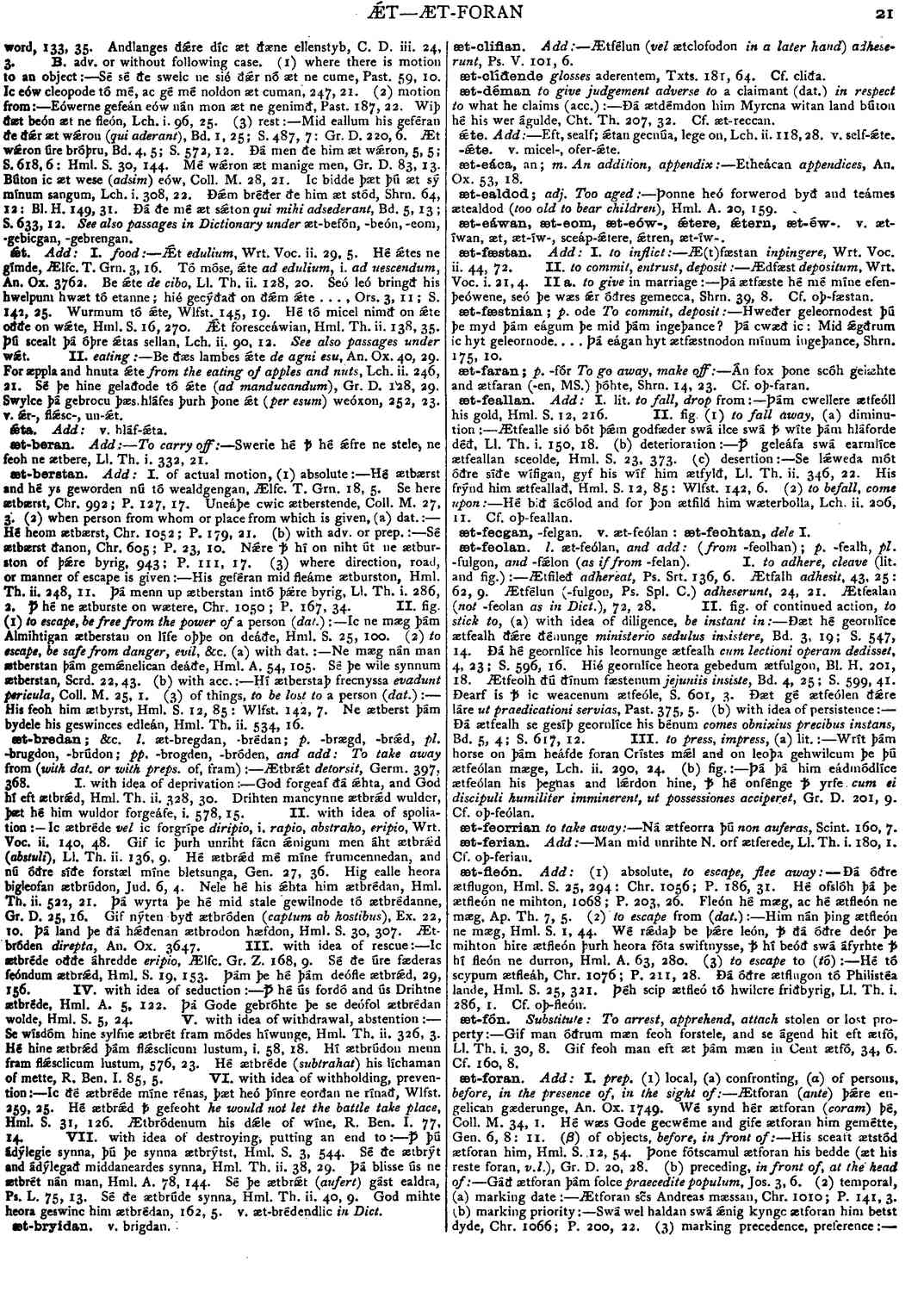ǽt
-
Æt
edulium,
- Wrt. Voc. ii. 29, 5.
-
He ǽtes ne gimde,
- Ælfc. T. Grn. 3, 16.
-
Tó móse, ǽte
ad edulium, i. ad uescendum,
- An. Ox. 3762.
-
Be ǽte
de cibo,
- Ll. Th. ii. 128, 20.
-
Seó leó bringð his hwelpum hwæt tó etanne; hié gecýðað on ðǽm ǽte . . . ,
- Ors. 3, 11; S. 142, 25.
-
Wurmum tó ǽte,
- Wlfst. 145, 19.
-
Hé tó micel nimð on ǽte oððe on wǽte,
- Hml. S. 16, 270.
-
Ǽt foresceáwian,
- Hml. Th. ii. 138, 35.
-
Þú scealt þá óþre ǽtas sellan,
- Lch. ii. 90, 12.
- See also passages under wǽt.
-
Be ðæs lambes ǽte
de agni esu,
- An. Ox. 40, 29.
-
For æppla and hnuta ǽte
from the eating of apples and nuts, Lch.
ii.- 246, 91.
-
Sé þe hine gelaðode tó ǽte (
ad manducandum),
- Gr. D. 128, 29.
-
Swylce þá gebrocu þæs hláfes þurh þone ǽt
(per esum)
weóxon,- 252, 23. v. ǽr-, flǽsc-, un-ǽt.
Bosworth, Joseph. “ǽt.” In An Anglo-Saxon Dictionary Online, edited by Thomas Northcote Toller, Christ Sean, and Ondřej Tichy. Prague: Faculty of Arts, Charles University, 2014. https://bosworthtoller.com/38002.
Checked: 0